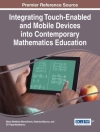′A unique blend of scholarly research-based principles of effective formative assessment with practical suggestions for use in the classroom. The authors show how the essence of formative assessment is in teachers′ responses to the substance students′ understandings, with a focus on how teachers can use pedagogical strategies to move students forward toward important learning outcomes. I highly recommend the book for both researchers and practitioners. It is an engaging, in-depth, sophisticated treatment of formative assessment.′
– James H. Mc Millan, Virginia Commonwealth University
Formative Assessment (AFL) supplies the strategy to support effective teaching, and to make learning deep and sustained. This book shows how to develop your planning for learner-centred day-to-day teaching and learning situations through an understanding of formative teaching, learning and assessment.
Within each chapter, based on real teaching situations, the strategies of the ′formative assessment toolkit′ are identified and analysed:
- guided group teaching
- differentiation
- observation & evidence elicitation
- analysis & feedback
- co-construction
- reflective planning
- self-regulation
- dialogue & dialogic strategies.
The principles set out in this book can be applied to any age or stage in education, but will be particularly useful to current practising teachers, students following international and national teacher training courses; CPD or in-service work; and MEd and MA post-graduate assessment/teaching and learning modules.
สารบัญ
What is formative assessment?
The Guided Group Strategy
Differentiation
Observation & Evidence elicitation
Analysis & Feedback
Co-construction: The Active Involvement of Children
Reflective Practice
Self-regulated Learner – Learner Autonomy
Dialogue & Dialogic Teaching
Ways Forward
เกี่ยวกับผู้แต่ง
Dr Marie Charles has experience as a teacher, researcher in formative pedagogy and race and inclusion and holds a Ph D in Cultural Studies & Humanities. She is currently publishing on decolonisation and reframing the curriculum. Dr Charles is an author/researcher whose work demonstrates that she believes passionately in the development and empowerment of the learner (rather than measurement or grading) being at the centre of the education process – a belief that she carries into her teaching and consultancy practice.












